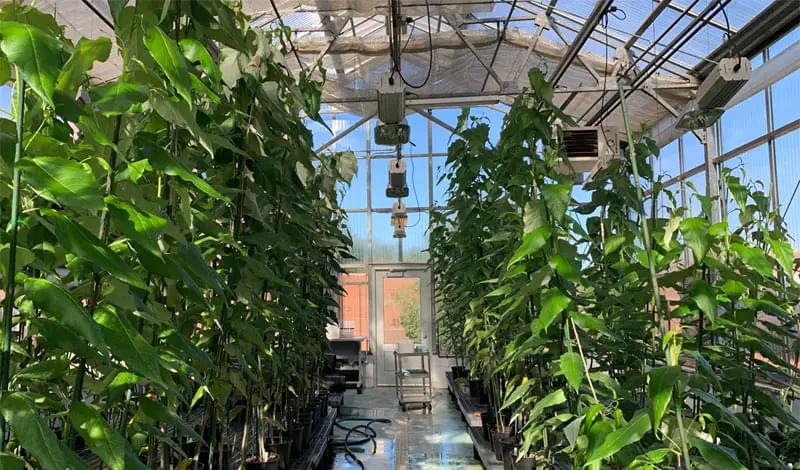Scientists have used CRISPR gene editing to reduce the lignin content in poplar trees by as much as 50%, offering a potentially more sustainable and efficient method of fibre production.
CRISPR-modified poplar trees (left) and wild poplar trees (right), growing in a North Carolina State University greenhouse. Credit: Chenmin Yang, NCSU
Lignin is a complex organic polymer that is integral to the structure of cell walls in many types of plants, especially in wood and bark. It acts as a type of binder in these walls, giving wood its hardness and resistance to rot. Lignin is the second most abundant natural polymer in the world, next to cellulose, and makes up between 15% and 25% of the composition of wood.
